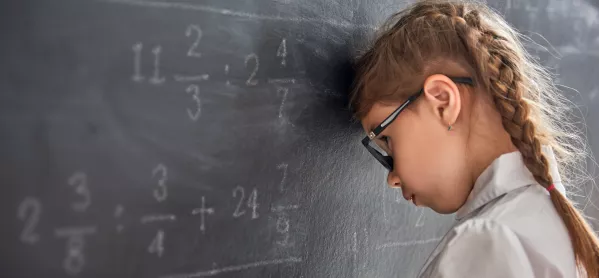Despite many of our politicians being enamoured with the idea of pupils chanting their times tables until they know them off by heart, rote learning can distract from maths understanding.
Rote practice is fraught with danger. Left unchecked, it can reduce rich mathematical concepts to a slew of rules and procedures that feel arbitrary and confusing to students.
A strict focus on memorisation all too easily comes at the expense of mathematical thinking, as the countless examples of students who demonstrate fluency without understanding attest to.
Times tables check
Instead, the emphasis needs to be placed on why mathematical techniques work. Because the more we immerse ourselves in the wondrous landscapes of numbers, the stronger our mental representations will be, and the more those facts will fall out as a natural by-product.
It’s only by exploring, probing and trying them out that we can fully understand a concept. For instance, when a child makes the discovery that a x b is exactly the same as b x a, the experience is revelatory, and the daunting task of learning 144 multiplication facts collapses down to just 72.
Mathematician Eugenia Cheng illustrates the point brilliantly: the only two multiplication facts she memorised are 6 x 7 and 7 x 8. The rest she can derive from her understanding of the relationships between numbers, and their inner workings.
When children are allowed to play with numbers, discover connections and appreciate the beauty of mathematics, they can retrieve those all-important facts with ease.
Engaging the mind
The child who effortlessly names the players in their favoured sports team has not committed these names to memory. Those facts are instead a by-product of supporting that team, knowing their style and formation, and following their matches from one week to the next.
This process is natural and immersive, leaving the child so acquainted with their team that memorising players’ names is unnecessary.
Why is it that we can so easily remember the lyrics of our favourite songs, even if we haven’t heard them for years?
It’s because they follow a tune or a rhythm that helps us to develop strong associations with the music. We didn’t have to sit down and memorise them one painstaking word at a time.
This should be the aspiration for all maths educators - to help students to develop an intimate relationship with numbers (and indeed all mathematical objects). The need for rote learning would diminish.
Dr Junaid Mubeen is a mathematician and a champion on TV’s Countdown. He is also director of education at Whizz Education
